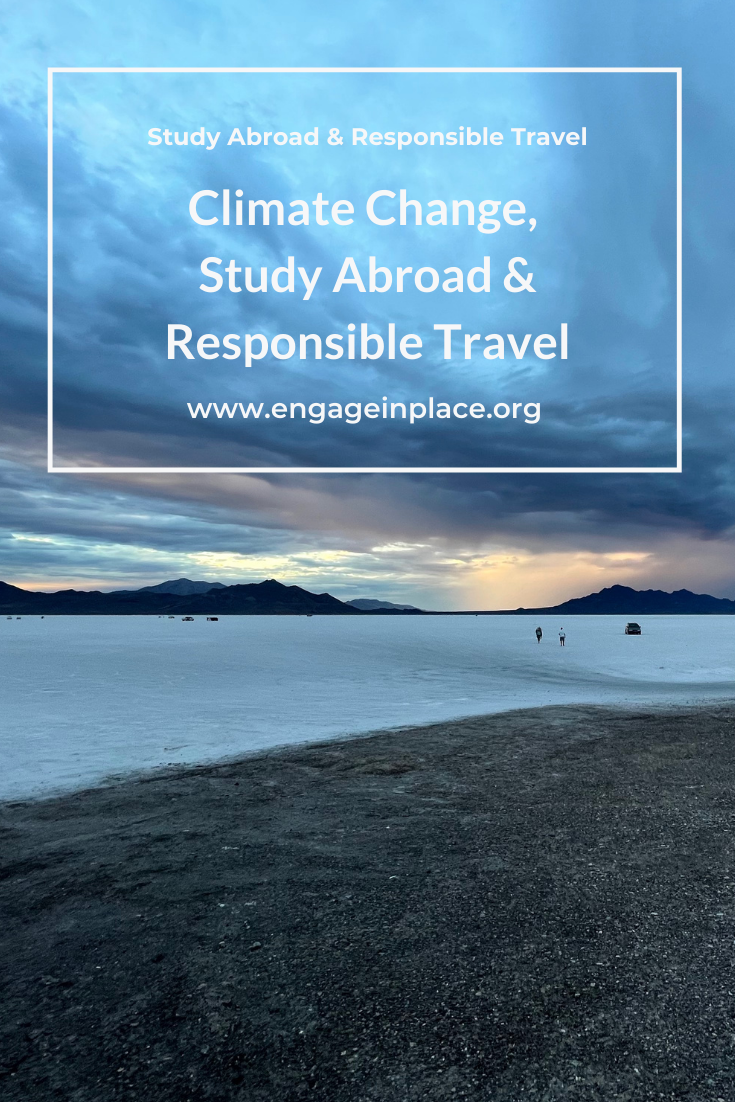Climate Change, Study Abroad & Responsible Travel
What is our role in the fight against climate change?
Wildfires, floods, and the never-ending news cycle of catastrophe - it can be hard to keep a positive outlook these days. The impacts of climate change are all around us. In the United States, many of us have had the privilege to ignore the consequences of a warming planet. For most folks worldwide, including our global partners, the findings of the most recent IPCC report on climate were nothing new. Since our founding, we have grappled with the tradeoffs of international travel and climate change. For us, this ethical dilemma has remained at the forefront. Should we be taking students abroad when the communities we work alongside are directly impacted by climate change? How do we maintain our relationships overseas as the realities of a warming climate worsen? Does our privilege make us blind to the steps we need to take as an organization to mitigate our impact?
Simply put - we don’t know. Like so many issues today, it’s clear we need to take action and leave the theoretical debates behind. How can we continue to serve our mission and provide meaningful intercultural learning opportunities (something arguably more important than ever!) with the devastating impacts of climate change?
Many things come to mind, but the truth is there is no good answer. This is a long-term conversation that we know we will continue to have , especially as it relates to travel.
Some simple changes we can make include:
Investing in climate offsets for all travel. Offsets are far from perfect and ideally we would eliminate our emissions of greenhouse gases. The reality is there are not a lot of alternatives. We can be more responsible consumers by minimizing our carbon footprint from our study abroad programs through offsetting our impact. Ideally, this will be through our work with local NGOs and community groups, but when that is not possible we can invest in community-based programs through reputable third-party organizations like the Gold Standard. Our hope is that others in the industry will follow suit and rethink their own policies as we collectively have tough conversations around the tradeoffs of international education and the impacts on climate change.
Continue to support our partners and youth leaders in their efforts to mitigate and adapt the impacts of climate change in their own communities. They are on the front lines and have experienced its impacts first-hand for many years. We know they are experts. They will help determine the best pathway forward to preserve important environmental resources and ensure community livelihoods. Investing in community-based projects will also cultivate networking opportunities among our partners through peer-to-peer learning.
Make sure our programs are immersive and based on the principles of slow travel, while asking the hard questions on IF we should be traveling abroad in the first place. It is important that we don’t jump on every opportunity but are thoughtful in our program design to support local economies through homestay, get outside our comfort zones and live alongside the communities and students where we are based. Sometimes going slow and being present can be uncomfortable, but we believe it is where growth happens. We will continue to design programs that challenge our assumptions, embody our ethos of responsible travel, and require us to learn in place.
Innovate by creating domestic programs and opportunities for intercultural exchange that reduce our carbon footprint. We believe that students can have the same learning outcomes in the US and abroad and are currently creating programs and partnerships in the Pacific Northwest that will launch in summer 2022. It is so exciting to think about what is possible as we collectively work together to reduce our climate impact.
This is just a start. It is not nearly enough. This is a question of social and environmental justice that is central to our mission. We will continue to have honest conversations about how we might decarbonize our programming and the inherent tradeoffs in international education and travel.






Our decision-making processes throughout the pandemic have been grounded in our values. We have been intentional in our approach to stay true to our mission. This year, we have continued to implement strategies to connect our network through peer-peer learning, hone our model for change and community-driven development, and tackle challenging issues like climate change.